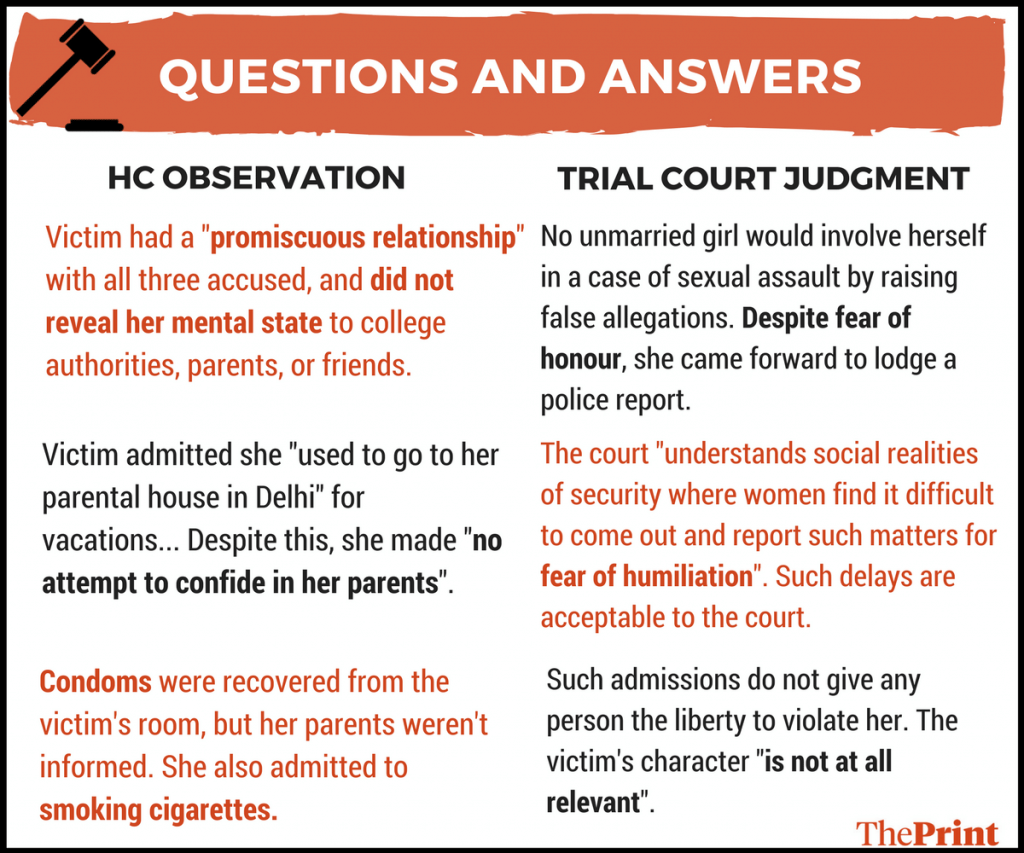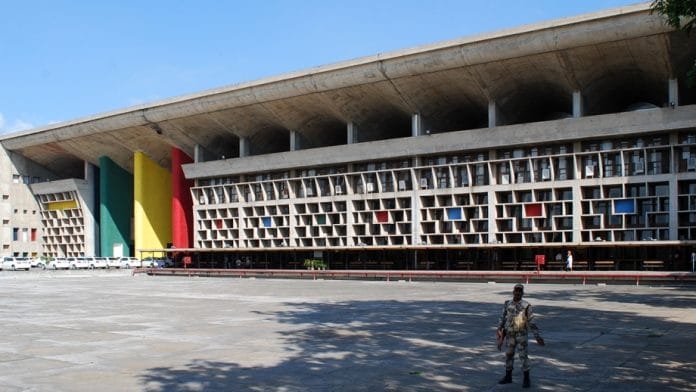Trial judge had relied on WhatsApp transcripts to convict three men for Sonepat rape; chats reveal how main accused Hardik Sikri controlled victim.
Chandigarh: Last month, the Punjab and Haryana High Court had sparked outrage for making adverse remarks on the conduct of the Sonepat rape survivor, and suspending the sentences of the three perpetrators of the crime.
But in granting them bail, the high court seemed to have largely discounted the trial court’s detailed 113-page ruling, which had dealt with and answered almost every observation made by the high court to doubt the victim’s credibility.
A trial court in Sonepat had convicted the three men – Hardik Sikri, Karan Chhabra, and Vikas Garg – for repeatedly raping a fellow student at the O.P. Jindal Global University in Sonepat. Sikri and Chhabra had received 20-year sentences from the trial court, while Garg had received seven years. They had been in prison for just over a year.
The men’s appeal against the conviction is to be heard separately in the HC, while an appeal challenging the bail order has been filed on behalf of the victim in the Supreme Court. The high court judges directed that the men receive psychological counselling in the meantime.
The key evidence
The trial court had relied heavily on WhatsApp conversations between the victim and Hardik, the main accused, in delivering its judgment. The conversations, which are part of the court record, clearly indicate a sexually exploitative, vicious grip Hardik had on the victim, based on blackmail, the threat of which loomed large over everything else.
ThePrint has seen a copy of the evidence that the court chose not to reproduce. Additional sessions judge Dr Sunita Grover relied on 129 pages of chat transcripts, and noted: “The whatsapp chat extracts Ex PW1/D running into pages 1 to 129 is so abusive and vulgar that the extracts of the same cannot be explained and put into the judgment and what only can be concluded through the whatsapp chat is that the prosecutrix was totally in control and dominance of accused Hardik.” [sic]

However, high court judges Mahesh Grover and Raj Shekhar Attri did not refer to the incriminating evidence against the convicts – over 100 pages of WhatsApp chats, showing a pattern of blackmail, rape, and abuse of the victim.
Instead, they relied heavily on the victim’s testimony in their 12-page order, saying it offers “an alternate story of casual relationship with her friends, acquaintances, adventurism, and experimentation in sexual encounters”.
Crux of the conversations
Although the victim and Hardik had met a few months after she joined the university, the chat messages between them available in the court records are of a time span of three months – 25 January 2015 to 5 March 2015.
The messages show he possessed nude pictures of her, and threatened to make them public. He used the threat to force her into sex, get more pictures, even videos, and the cycle continued.
Throughout the conversations, Hardik repeatedly addressed the victim with the grossest expletives. Other than the occasions where the trial court established that Hardik and his friends raped the victim, Hardik constantly demanded phone sex, either through calls, or by asking her to send nude pictures. He forced her to buy a sex toy, asking her to use it and send him pictures.
The trial court judge accepted the charge of blackmail and convicted him for it.
The high court did not refer to this evidence, but made coloured remarks on the kind of cigarettes the survivor smoked, and that condoms were found in her hostel room.
Although the victim admitted to smoking and that condoms were found in her room, the trial court categorically dismissed that such admissions did not give anyone the right to violate her.
On why the victim delayed reporting the incident, the trial court found that the victim was “so traumatised and tormented” that she could not even disclose her sufferings to anyone. The judge noted that “law must be alive to societal realities where women find it difficult to come out and report such incidents.”






